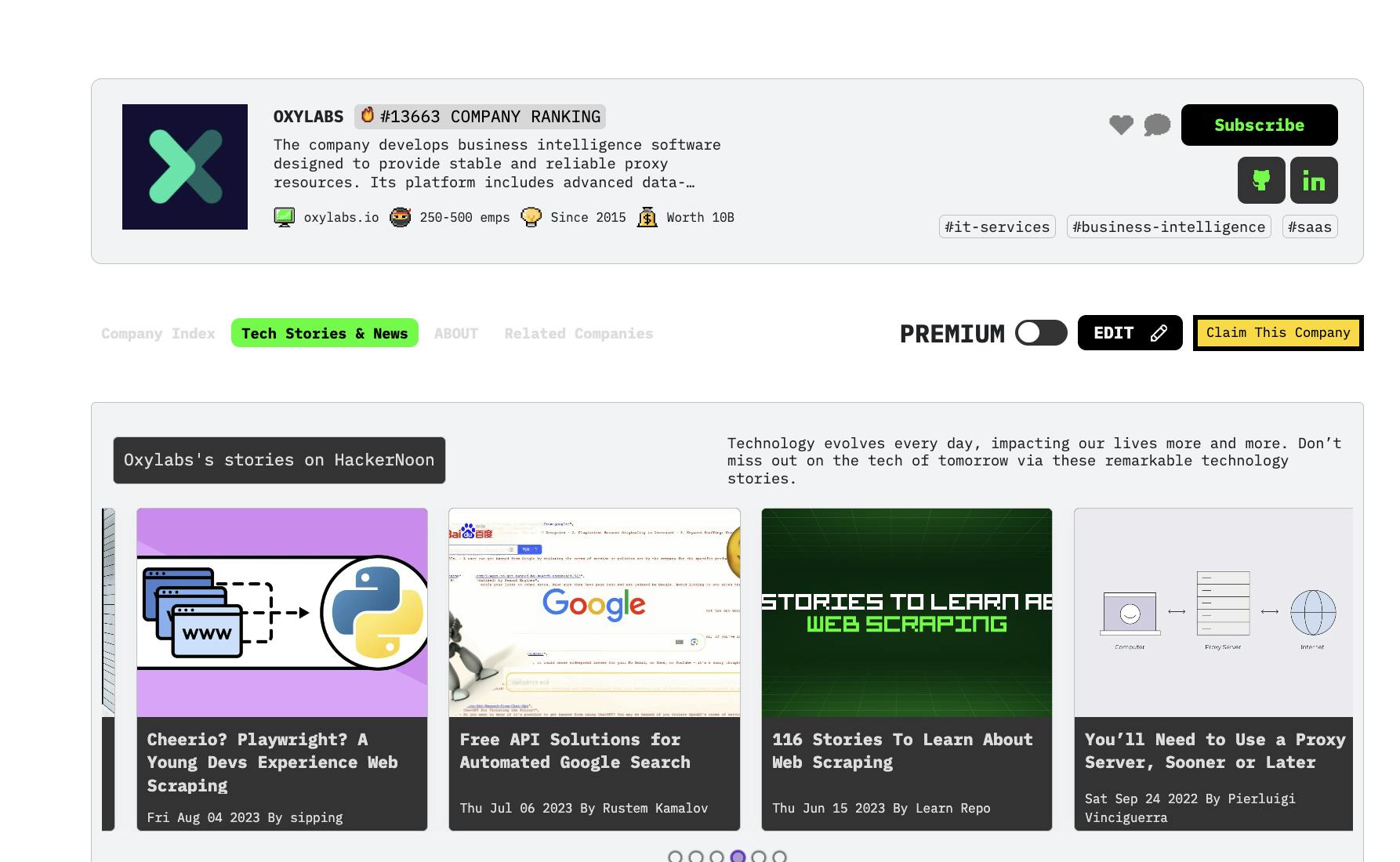Corporate venture capital (CVC) is still rare in Africa, with many large companies opting to remain distant from the local startup ecosystem, instead preferring to focus on their core operations. Outside Africa, the story is much different, with corporate venture capital investors accounting for about 36% of total VC deal value globally.
However, a few companies like Orange, Standard Bank, Safaricom, and GB Corp have been defying this worrying trend in Africa. GB Corp, Egypt’s 26th largest public company, has backed five early-stage startups in the past four years, positioning itself as both a capital provider and a strategic partner in Egypt’s startup ecosystem.
Through GB Ventures, its corporate venture capital firm led by Nada Shaheen, the company is investing at least $500,000 in Egyptian startups, which can eventually reach $5 million in follow-up rounds.
Relatively unfamiliar outside its markets, GB Corp is a group with 80 years of experience built around car manufacturing and importation, financing, and related services, with a presence in Egypt, Jordan, Iraq, Kenya, Tanzania, and Rwanda.
Given the parent company’s focus on mobility and financing, it is no surprise that GB Ventures invests in logistics, fintech, and mobility startups. “When we were deciding and designing our venture capital strategy, we chose the key businesses we want to grow and align with the startup ecosystem, so we can have agility and innovation in these sectors,” Shaheen said.
This focus on three sectors allows it to offer access to its infrastructure or client networks and mentorship to portfolio companies. “We are a strategic fund that mainly serves the main business of the corporate,” Shaheen said. “We integrate startups that are beneficiaries and working in the same sectors as we do. We are building an ecosystem for the startups in-house.”
For this week’s Ask an Investor, I spoke to Shaheen, the managing director of GB Ventures, about how her firm invests in startups, what a corporate venture should look like, her firm’s thesis and support, how her firm invests, and why corporates will die if they ignore startups.
This interview has been edited for length and clarity.
CVC firms rarely focus on financial returns; instead, they focus on creating value for the parent company. How do you balance financial returns with the objectives of the company?
First of all, before designing the corporate venture capital arm, we agreed that it’s not only for financial returns because it’s not a normal VC. We needed very strategic investments. These investments are not only about putting money in and waiting for ROIs or financial returns. We consider the integration and synergies between the startup and the company itself.
It’s a long-term investment, not a short-term one. We almost doubled down on half of our portfolio companies because of the long-term relationship. We integrate them fully into our business, and we have commercial agreements between the company and the startup.
We have two return on investments (ROIs). The first is the direct ROI—how the startup grows and increases its valuation. The second is the commercial relationship between these startups and our corporation. These startups generate money for different businesses within the company itself. That is also a very important ROI. It’s not only about money; it’s also about enhancing our products or services. We rely on the innovation that comes from these startups.
Why are you focusing only on Egypt right now?
It was the idea of the corporation. CVC is still very new in Africa, and the corporate mentality towards the startup ecosystem and investment is very conservative. So, to convince the corporate to invest in startups, we needed to create a safe and comfortable zone.
Egypt was that comfort zone. We have the authority, the network, the connections, and the main business HQ here. Therefore, it was safer to start in Egypt, build rapport between the corporate and the startup ecosystem, and maybe later introduce new markets.
That’s why I attended GITEX in Nigeria. I believe that if we want to expand the main vehicle one day, we need a parallel ecosystem. Instead of going directly into Nigeria with the main business, we can start by investing in startups there to get better insights into those countries and regions. , we’ll know where it makes sense to expand. For me, it’s a long-term strategic step. It also suits the company’s risk appetite. It’s about building and gradually changing the corporate mentality—baby steps.
If you were to design a crash course for corporate venture capital, what would be in the course?
If we are talking about creating corporate venture capital for corporates, they need to invest time. I’m not saying this is the course curriculum, but I’ll share the process I went through from the very beginning, from scratch.
The corporate needs to understand that there are actually two ecosystems: the corporate itself and the startup ecosystem. The corporate has to know why they are doing this. They need to answer the important questions: Why are we doing this? How do we want to do this? What are our expectations from these investments? What KPIs are we looking for from startups?
Sometimes corporates think it’s a sexy idea, but they don’t really know why they want to do it.
On the startup side, founders should be bold and confident about their ideas and what they want from the corporate. Sometimes startups feel small when approaching corporates. They start to compromise on their business model and what they’re building, just to satisfy the corporate. That can cause them to lose the potential of their business. That’s not the best way to do things.
It also requires patience because this is an impactful investment—it’s not the normal ROI-focused investment. The corporate has to support the startup, provide resources, and mentorship. Corporates usually negotiate better deals because they can offer more than money. So they need to know how to give startups all the resources they have.
Structurally, it’s important to design a dedicated entity for CVC. It should be separated, but not isolated, from the corporate. Why? Because at the end of the day, it’s strategic for the corporate. You must align with the corporate strategy but not allow day-to-day interference from the board in CVC operations.
We struggled with this structure in the beginning, but eventually created a model that is separated but not isolated. It was hard because the corporate board was very involved. I had to raise awareness and educate board members about what works and what doesn’t. That was the hard way. If this had been done from the start, it would have saved a lot of effort and time.
Can you share an example where a portfolio company benefited from GB’s backing?
One of our portfolio companies is an e-commerce platform for automotive spare parts. This was a very important step for us. We had spent three years trying to build an e-commerce platform in-house, but it was difficult. The internal team was already overloaded and had no real visibility in this sector. They knew how to run the main vehicle but not how to build a new one, like e-commerce.
We partnered with a local startup with a strong track record in automotive e-commerce. We deployed right away and integrated them with our spare parts business. They started representing our brand. We also helped them access financing facilities from our fintech companies.
This accelerated their growth while also making them our representative in the ecosystem. Since it’s their own technology and expertise, they can innovate more than we can in-house. We didn’t have to build it from scratch.
What does your investment decision-making process look like?
We have a board, an investment committee made up of me and the corporate board members responsible for each business we invest in. We have the CEO of the fintech group, the CEO of the automotive group, the group CEO for automotive and logistics, the investment group CEO, and me as venture capital manager.
It’s mainly a voting decision. The business CEO usually has priority because they decide if the company is strategic for their business in the short- and long-term. After technical meetings with business lines and startups, we make our decision.
From my side, I prepare documentation that shows how important the startup is to the business and the ROIs. And when we co-invest, the opinion of other VCs is also very important.
How quickly can you move compared to traditional VC firms?
It can take four to six weeks. We take time to validate the idea, validate the synergies, and explore the team and the relationship between us and the company.
But once we decide, we deploy very quickly.
Sometimes, we need to validate through a pilot phase. We may like the idea but want validation, so we start with a pilot integration with one of the business lines. That way, we can closely explore their base, their team, their decision-making, and their ability to satisfy customer needs. Sometimes, we do a three-month pilot phase with a startup to really know them.
Do you do follow-on investments?
Yeah, 100%. We did that with three of our portfolio companies. As long as they are strategic and doing well, we continue to back them. We hold quarterly meetings with all portfolio companies to track their progress.
If they are meeting expectations and KPIs, we do follow-ons when they ask. It’s a safe and comfortable zone for us since we already know the team and support them. Sometimes, follow-ons can go up to $5 million if we’re confident in the company’s progress and potential.
Do you usually take board seats?
Yeah, we usually take board seats. Sometimes it’s a simple agreement for future equity (SAFE) note. Since we’ve just started, we’re flexible and exploring different models. We’ve done SAFE notes, but most of the time we have board seats. As of now, we have board seats in all the companies.
How do you source deals?
Different ways. Most of the time, it’s through our VC partner network. The second way is me headhunting and reaching out to strong entrepreneurs and founders. It’s easy to know who’s really good.
Sometimes startups and founders reach out to us directly. I also attend all demo days and ecosystem events. We’re well known to ecosystem players because the group is very big. Personally, I’ve been part of this ecosystem for the last 12 years, so we have visibility on what’s happening in Egypt.
You either do a six-month program or direct investments. How does that work?
We used to run an acceleration program for early-stage startups. It was a six-month program. But later, we decided not to continue with that because of the hassle. Instead, we now partner with other accelerators and use their programs as a pipeline. Running it in-house was too much of a burden, so we stopped.
Besides funding, what kind of support do you provide to portfolio companies?
In our culture, the most important thing is to help startups achieve market presence, security, and stability. The first thing we focus on is integrating the startup with our company. That creates new revenue streams for them. Sometimes they are vendors, sometimes partners, sometimes customers.
We give them our resources, which is what differentiates a CVC from a normal VC. Because we have a real vehicle, we can directly accelerate their growth in the business and the market. We also have a wide network of sister companies and strong relationships with other firms in Egypt, so we give them market access and visibility.
We also offer mentorship. They have full access to C-suite executives in our company. If they need to validate ideas or decisions, they can reach out to board members, C-suite, or VPs for one-on-one mentorship. That provides market insights and expertise.
Beyond that, when a corporate believes in a startup, it gives them accreditation in the ecosystem—they’re seen as credible. All of our portfolio companies are profitable, which strengthens the perception of seriousness.
Finally, we help with investor introductions.
How do you see the rise of corporate venture capital (CVC) across Africa in the coming years?
I think we’re going to see more CVCs, 100%. At GB Ventures, I had the privilege to organize a roundtable in Morocco where I invited corporate leaders who were open to exploring corporate venture capital.
Now, many corporates—including banks—are starting to develop this mentality. Four years ago, no one in Africa was talking about CVC. You barely heard the term. But now, many companies reach out to me asking how we did it, how we overcame obstacles.
For example, Bosch is one company I’m helping design a CVC program. Corporates in Egypt have also started creating their own funds. I think this year we’ll see the number of CVCs in Africa double. It’s no longer a luxury—startups and technology are growing too fast. Corporates that don’t align with this ecosystem will die soon.
What do you mean by corporates will die soon?
I mean, startups bring innovation, agility, and scalability. Corporates are generally slow to achieve that. So, it’s always better to have a close relationship with startups and innovation. That way, corporates can keep an edge and maintain privilege in their ecosystem.
In your opinion, what sectors are currently overlooked or undervalued on the continent?
If I didn’t say AI, I wouldn’t seem cool. But for us, we are quiet here because we already focus on fintech, logistics, and automotive.
That said, I think there are other very important and undervalued sectors: edtech, biotech, agritech, and proptech. These are growing and gaining attention from VCs.
Of course, AI is big—it’s the time for AI and investing in it. But I don’t like how everyone is chasing the word “AI.” I hate the FOMO investments. So I wouldn’t add AI to my focus list, but obviously it’s there.
How do you think about exits for the investments you make?
For now, it’s too early to exit any of our portfolio companies. As I said earlier, it’s a long-term relationship with the startups. When we deploy, we don’t immediately think about exits—it’s too far for where we are now.
That said, we are considering exits in the future by building partnerships with VCs. These relationships will help us have smoother and easier exits later. But for at least the next three years, we have no intention of exiting any of our companies.
What is your vision for GB Ventures in the coming years? How do you see the firm evolving?
GB Ventures feels like my own business. It’s owned by a big corporate, but for me it’s like my baby that I fought for four years ago. I saw it grow from scratch, and I always feel like I’m representing this company.
My goal is to create real impact in the Egyptian and African ecosystems. To enhance emerging market economies, corporates must invest in startups. Corporates have the money, resources, authority, and networks. I’ve seen firsthand how powerful corporates are. Startups, on the other hand, often need more than money—especially at early stages. They contribute significantly to national economies.
I believe this cooperation—CVC—is an economy-changer and life-changer. I’m passionate about inspiring more corporates to achieve success stories with startups and our portfolio, so other corporates will be encouraged to start their own venture arms.
When I designed GB Ventures, I looked for examples in Egypt and found none. That was frustrating. So I decided to create the example myself and give it my all—not only for GbCorp, but for the ecosystem at large.
When I spoke at Drytex Morocco, they told me I was the first woman leading a corporate venture capital firm in Africa. I was flattered but also upset that it hadn’t happened before. So I want to create a platform for other corporates, and especially women in corporates, to step forward and start their own entities. The shape may differ, but the impact and results will be the same at the end of the day.
Mark your calendars! Moonshot by is back in Lagos on October 15–16! Meet and learn from Africa’s top founders, creatives & tech leaders for 2 days of keynotes, mixers & future-forward ideas. Get your tickets now: moonshot..com











